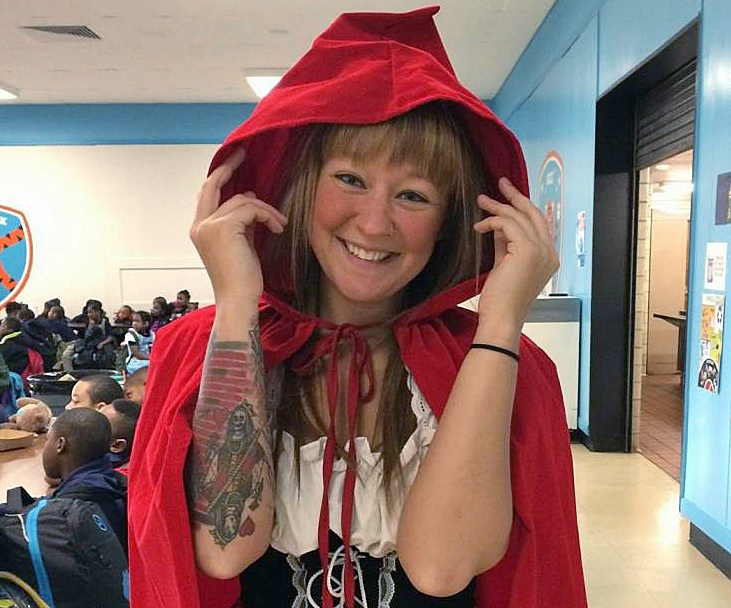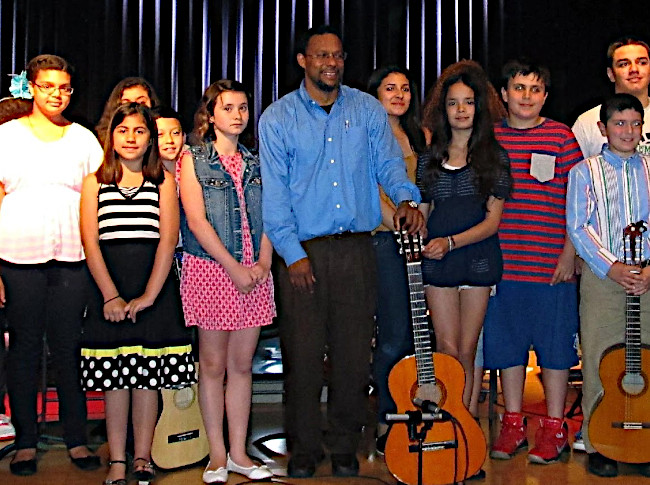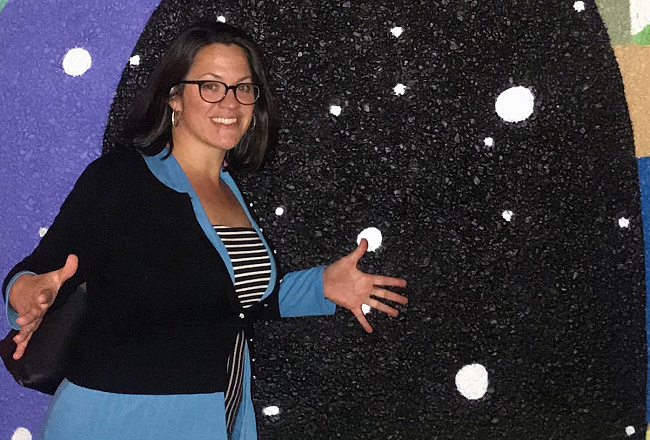Meet our Education Fellow – Stephanie Nikolaou
Posted Sunday October 06 2019 at 2:44 pm

Hello there! I'm Stephanie. I call Rochester, NY and Boston, MA home. I arrived in the city 11 years ago to pursue a graduate degree in Theatre Education at Emerson College. I grew roots in the Brighton area, and as a Theater and Dance teacher, spent much of my time collaborating with students, families and educators in Boston Public Schools. I am also a director, and have created devised and script performances with youth for different communities throughout Massachusetts. After eight years in the classroom, I find myself pivot-turning within new communities and organizations. I am currently a member of the Education Policy and Management cohort at the Harvard Graduate School of Education.
What are your favorite pastimes?
"I listen to podcasts and watch documentaries, especially ones that focus on commentary, art and true crime. I love my kitchen because it gives me the space to cook, water my plants and bug my cat. My favorite long-weekend escape is Manhattan. If I can’t leave the city, you’ll find me at a sporting event. You might spot me in a crowd at a game because I’m still foolish enough to wear a NY jersey in New England (Go, Sabres!)."
If you could be a cartoon character, who would you be?
"Batman. I'm obsessed with Batman. The comic or animated series counts, right? I have a cat named after him (my cat companion is a beautifully strange, hairless, dark blue trouble-maker who can't hide his ears). I have a few tattoos depicting the characters from the franchise (the comedy/tragedy drama masks as Joker/Batman). Mark Hamill's version of the Joker in the animated series of Batman is superb."
You are trapped on an island. What three items do you want to have with you?
"Trapped?!?! I have water to soothe me, so that’s a plus. I'll need to communicate through painting or drawing, so I'd appreciate watercolors or pencils. I have a canvas pouch filled with mementos I've collected to commemorate time spent with someone special, so I'd like to keep that close to me. I could probably survive on pizza Goldfish crackers."
Do you have any uncommon talents or quirks?
"I have a warped sense of humor, and I snort when I laugh at something really hilarious. My Buffalo chicken tenders are on point."
What brings you to VSA?
"The VSA has turned up in many different aspects of my life. I have leaned on people here and have been introduced to invaluable colleagues I consider friends and family in arts and education circles. Programs at the VSA helped bridge gaps in my professional practice as a teacher. I wouldn’t be where I am today as an advocate without the support of this organization."
What are you doing during your fellowship?
"I am an Education Fellow and will work with teaching artists and the COOL Schools program to provide professional development and curriculum support. I want to capture quantitative and qualitative data to support how we assess arts integration, quality arts instruction and if we are doing enough to support collaboration with teaching artists and teachers in school settings. I ultimately want to provide stakeholders at the local, state and federal levels with recommendations for funding to sustain the VSA, and other organizations, that provides full access to the arts and culture to people of all abilities and supports active citizenship through
universally-designed lenses."


